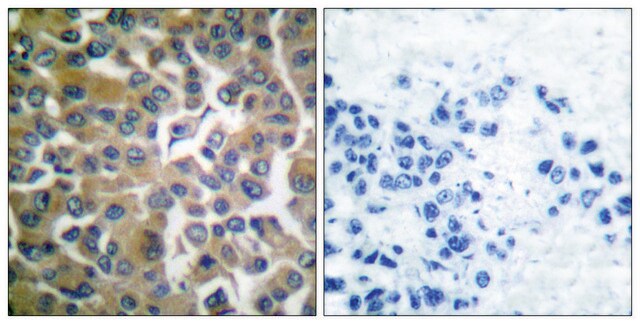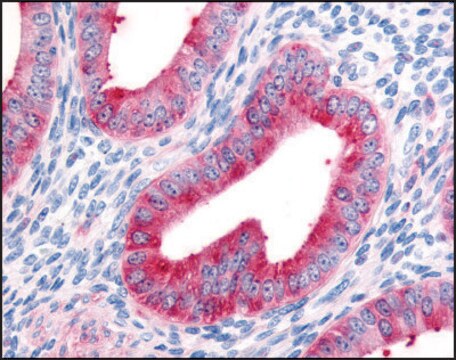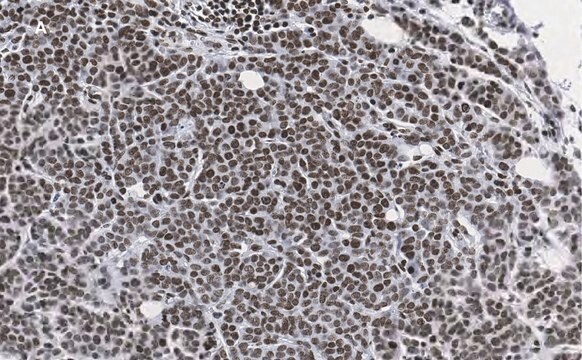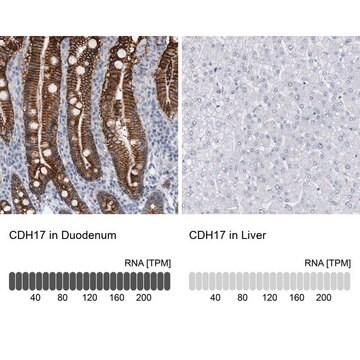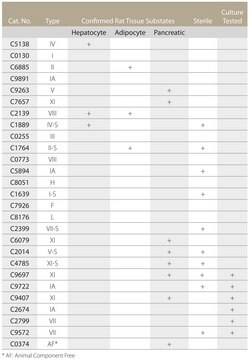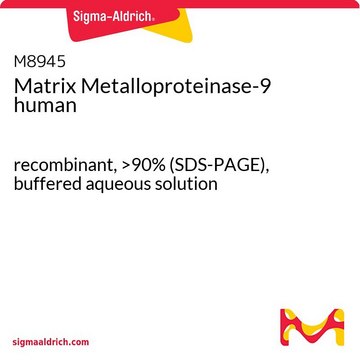MABC1145
Anti-FAP Antibody, clone 73.3
clone 73.3, from mouse
Sinónimos:
Fibroblast activation protein, Propyl endopeptidase FAP, Dipeptidyl peptidase FAP, Serine integral membrane protease, SIMP
About This Item
Productos recomendados
biological source
mouse
Quality Level
antibody form
purified immunoglobulin
antibody product type
primary antibodies
clone
73.3, monoclonal
species reactivity
mouse
technique(s)
flow cytometry: suitable
isotype
IgG1κ
NCBI accession no.
UniProt accession no.
shipped in
ambient
target post-translational modification
unmodified
Gene Information
mouse ... Fap(14089)
General description
Specificity
Immunogen
Application
Flow Cytometry Analysis: 1 µg/mL from a representative lot detected FAP in 3T3/FAP overexpressed cells, but not in 3T3 WT cells. (Courtesy of Leslie Hopper, University of Pennsylvania, USA).
Apoptosis & Cancer
Quality
Isotyping Analysis: The identity of this monoclonal antibody is confirmed by isotyping test to be mouse IgG1 .
Target description
Physical form
Storage and Stability
Other Notes
Disclaimer
¿No encuentra el producto adecuado?
Pruebe nuestro Herramienta de selección de productos.
Storage Class
12 - Non Combustible Liquids
wgk_germany
WGK 1
Certificados de análisis (COA)
Busque Certificados de análisis (COA) introduciendo el número de lote del producto. Los números de lote se encuentran en la etiqueta del producto después de las palabras «Lot» o «Batch»
¿Ya tiene este producto?
Encuentre la documentación para los productos que ha comprado recientemente en la Biblioteca de documentos.
Nuestro equipo de científicos tiene experiencia en todas las áreas de investigación: Ciencias de la vida, Ciencia de los materiales, Síntesis química, Cromatografía, Analítica y muchas otras.
Póngase en contacto con el Servicio técnico